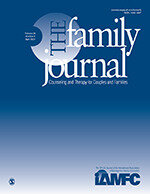Transnational familyhood involves care reconfiguration and shifting roles among Filipino migrants and the family left-behind. This study investigates how experiences and practices of transnational care arrangements are negotiated from the perspective of the nonparental carers. It specifically aims to understand its dynamics and patterns in shaping care relationships, normative familial values and the hope to reconstitute the family amidst migration-induced care.
Results of the study showed that the grandmothers of the migrating parents were commonly entrusted with child fostering and reliance, which to encompass mediation in the relationship of migrant parents and left-behind children. As they shoulder majority of caregiving responsibilities, they often face differing burdens of caregiving, mediation and ageing. The lived realities and socio-cultural facet of grandparent-caregiving reveal their unconditional love to the migrants’ family, thus enduring the challenges of navigating transnational parenting.
The critical role of grandparents as nonparental carers in the case of Filipino transnational families demands greater recognition in the development of programs and policies to highlight an integrated family and health assistance responsive to them in the areas of transnational care arrangements, care sharing, collaboration and the shifting responsibilities and expectations. It is hoped to cultivate stronger family connectedness and intimacy.

